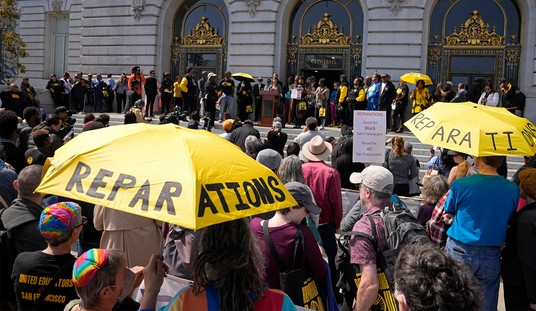Lebanese scholar Tony Badran quotes Robert Ford, President Barack Obama’s unconfirmed pick for ambassador to Syria, and Senator John Kerry, chairman of the Senate Foreign Relations Committee, making statements last week that are breathtaking in their disconnection from reality.
Kerry said he believes Syria’s president, Bashar Assad, “understands that his country’s long-term interests … are not well served by aligning Syria with a revolutionary Shiite regime in Iran and its terrorist clients.” Ford, at the same time, said the U.S. “must persuade Syria that neither Iran nor Hezbollah shares Syria’s long-term strategic interest in … peace.”
These statements are simply off-planet. Either Kerry and Ford don’t know the first thing about how the Syrian government perceives its own interests, or they’re making stuff up for the sake of diplomacy.
It could be the latter. That happens. In Baghdad in 2008, a U.S. Army officer told me that the U.S. said things that weren’t strictly true about Moqtada al-Sadr and his Mahdi Army militia to make it easier for him to save face, climb down out of his tree, and cut a deal. The American and Iraqi armies were still fighting his men in the streets but pretended they were only battling it out with rogue forces called “Special Groups.”
“We are giving the office of Moqtada al-Sadr a door,” the officer said. “We want them to be a political entity, not a military entity. So if you’re fighting coalition forces or the Iraqi army, we’ll say you’re a Special Groups leader or a Special Groups member.”
“So,” I said, “this is like the make-believe distinctions between military wings and political wings of Hamas and Hezbollah?”
“Yes,” he said. “That’s it. That’s exactly it.”
I’d like to give Kerry and Ford the benefit of the doubt here and assume that that’s what they’re doing with Assad, that they know Syria’s alliance with Iran is three decades old and therefore well thought-out and durable, that they know his foreign policy goal is one of “resistance” rather than peace, but I have my doubts. They otherwise shouldn’t find engaging him worth the humiliation and bother.
The U.S. military used diplomatic fictions to help convince Sadr to cool it, but he was actively losing a war at the time. He was, shall we say, open to constructive suggestions. Assad is not losing anything. On the contrary, he has all but reconsolidated his overlordship in Lebanon through terrorism and warlordism, and his patron regime in Tehran is on the brink of becoming a nuclear-armed mini regional superpower. Kerry and Ford should know they can no more flip Syria into our column than they could have lured East Germany out of the Soviet bloc during the Brezhnev era.
Diplomatic fictions have their time and place, but there’s a downside. Unsophisticated players, observers, and analysts begin to believe them and no longer understand what is actually happening. Residents of the Washington, D.C., bubble are especially susceptible, but I’ve met American journalists who live in the Middle East who don’t understand that Assad strives not for peace and stability but rather for revolution, terrorism, and war. (They might want to reread The Truth about Syria by Barry Rubin and Syria’s Terrorist War on Lebanon and the Peace Process
by Marius Deeb.)









Join the conversation as a VIP Member